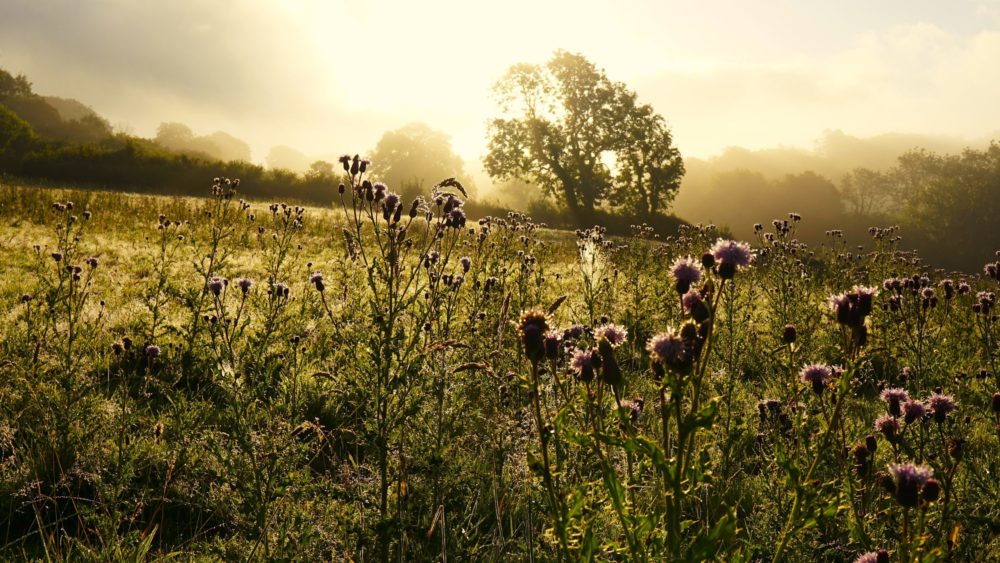Avoiding despair in the face of the climate emergency

Nick Swannell
It’s the same every morning. I wake up afraid.
I’d call it unease, or free-floating anxiety, but that doesn’t quite capture it. It’s stronger than that. It’s dread.
I go about the business of my comfortable life but it’s there under everything, draining my enthusiasm, sapping my sense of purpose. Why bother with anything if humankind is bent on self-destruction? Then I start to feel guilty. If I really believe we’re facing imminent existential threats, shouldn’t I be doing something about it? Then come the feelings of helplessness: what can I do that will actually make any difference?
Why am I feeling this way? Let me flip that: why aren’t you? Dread is an entirely rational response to what I’ve learned in 5 years of climate activism.
If all signatories to the 2015 Paris Agreement keep their pledges on reducing emissions, we’ll hit 2°C by 2050 and 4°C by 2100. Those are global averages; the temperature increase over land will be twice that.
Increasing temperatures are just one symptom of the metacrisis. We haven’t mentioned biodiversity loss, deforestation, soil erosion, ocean acidification. None of it is good.
A planet sized habitat
There’s no blame here. Humans are simply doing what any species does, expanding until we reach the limits of our habitat’s carrying capacity.
Unfortunately, our habitat is the entire planet. For hundreds of thousands of years, we lived within our means; then we discovered vast stores of ancient energy beneath the ground and found ingenious ways to exceed Earth’s carrying capacity.
We now live, and consume, as if we had multiple Earths to extract resources from and dump waste into.
It’s called the tragedy of the commons: the behaviour that’s best for the individual is not what’s best for the group. It’s a uniquely human predicament.
We know the harm we’re doing to ourselves, and we know how to stop it. But who will be the first to stop? To say “No, we have more than enough?”
It requires no new technology, merely a change in collective behaviour. But time is short. Can we change, as a global community, in time to save ourselves?
Reasons to hope
We cannot see the future, but one thing we can be sure of is that things do change. Seemingly immutable systems do fall; the collapse of the Soviet Union is a recent example.
Before 1989, it seemed inconceivable that such a mighty empire would fall. Just over ten years ago, smoking inside cafes and pubs was completely normal – mindsets can change quickly.
And governments the world over can act together to avert disaster, as we saw during the pandemic.
Of course, to tackle the climate emergency we need change of a far greater magnitude than anything we’ve seen before.
The profit motive has taken us to the brink of extinction; we need to re-think the fundamental drivers of our global community. This will only occur of necessity, once western comfort levels are threatened at scale, but it will come.
Meantime, climate activists must keep pressing governments and corporations to act urgently. Despite the egregious prison sentences given to peaceful protesters recently, non-violent direct action has been very successful in changing policy.
Activism
On a personal level, being involved in activism has enabled me to feel a little less helpless. There’s some comfort in being with others who understand the gravity of the situation, and I’m genuinely in awe of their bravery and resilience, even as they face years in prison.
The very least we can do as individuals is to find ways to make things less bad. As a mentor with Egin I’m working with community groups who are doing important, positive work.
While a community group in one village growing their own food or trying to reduce their impact on the planet by getting solar panels might not seem a big thing, I’m learning about more and more such groups all over the country – in fact, all over the world.
It shows that mindsets are shifting – and perhaps the revolution we need has to start from the grassroots and move from the ground up, rather than waiting for governments to snap out of ‘business as usual’ and save us.
Inspiring
Being around the community groups that I’ve been mentoring, seeing the real difference they make to people’s lives, is inspiring; and being able to help them in turn is immensely rewarding.
Hope is a funny word. It can conjure images of sitting around, waiting for a superhero or a tech fix to come along and solve everything.
I prefer the idea of Active Hope, as Joanna Macy calls it, as opposed to “passive” hope: the idea that by being part of working towards the world we want to see, we can tap into a sense of hope. And, even if we don’t get the outcome we want, working towards the world we want to see brings us together with like-minded people and reminds us that there are millions, billions even, of people who share our dream of a fair, just, sustainable and beautiful world.
Despair is a waste of time. However bleak the future may seem, we’re still here, and we still have lives to live. Anything we can do to move things in the right direction can only be good.
As conditions become more challenging, strong community bonds will be vital. And helping others is not only an intrinsically good thing to do, it’s also the best way to lift your spirits. You can make a difference. Be the change you want to see.
Support our Nation today
For the price of a cup of coffee a month you can help us create an independent, not-for-profit, national news service for the people of Wales, by the people of Wales.





There is a vacuum in global leadership. Doing our bit as individuals is a drop in the ocean, compared to what states and corporations might achieve.